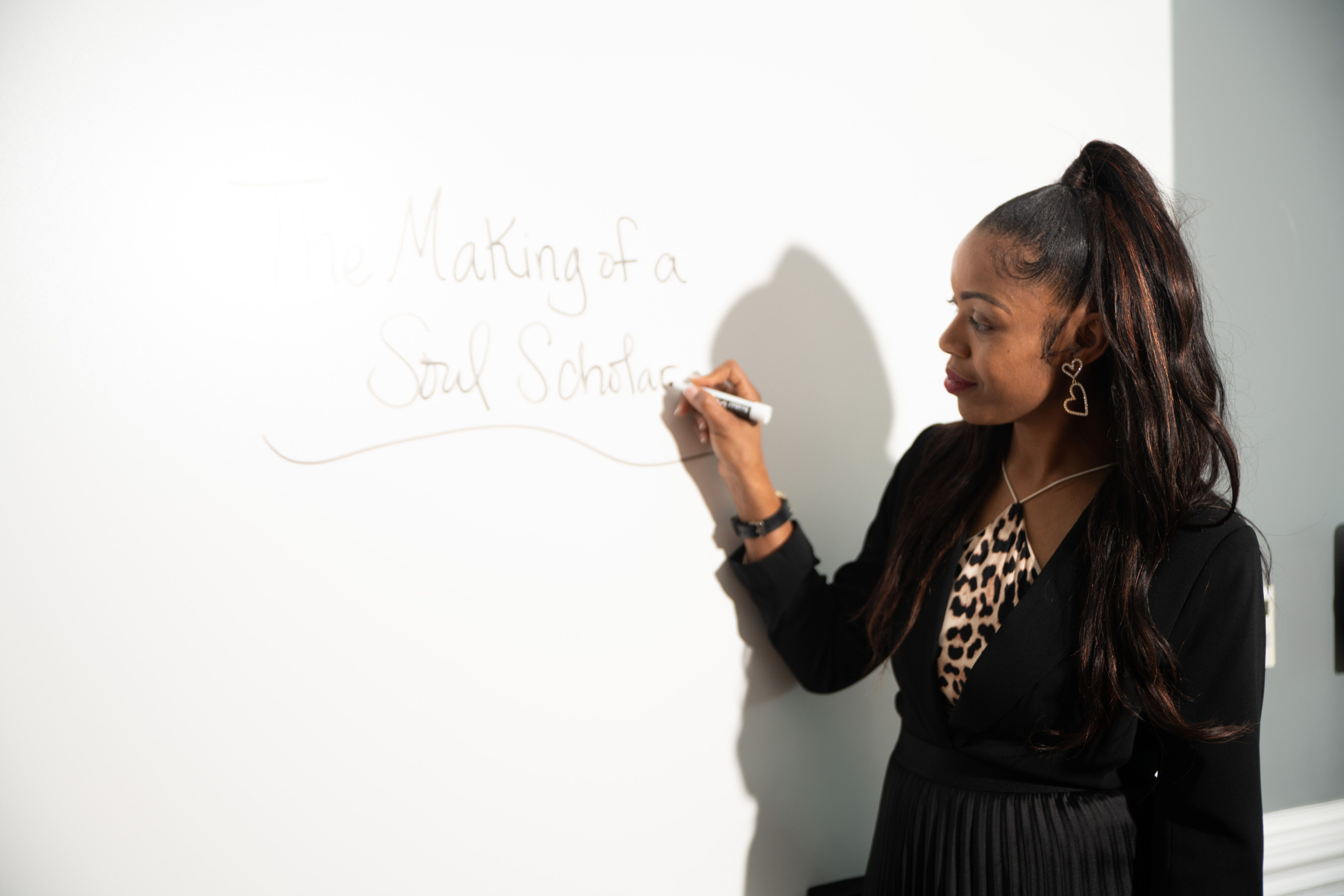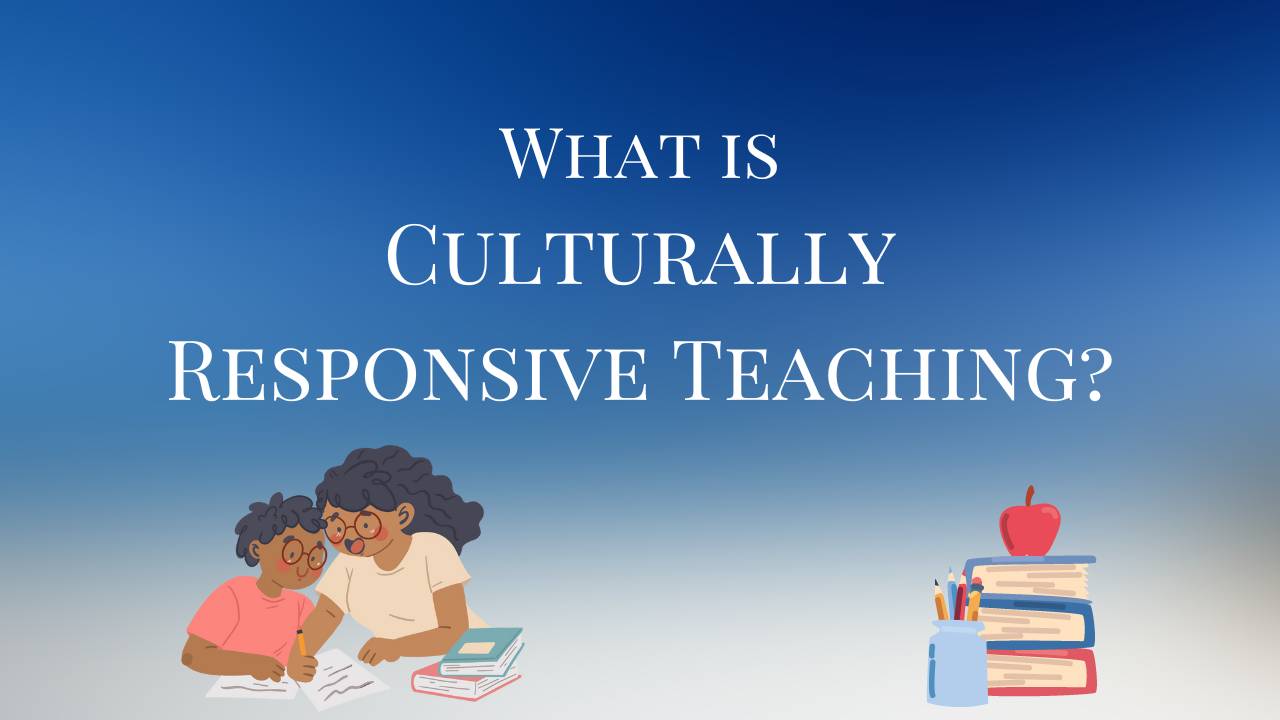Leading with Soul Coaching Program
1:1 Coaching and Routine Community Networking
- 12 week coaching program
- Bi-weekly 1:1 Coaching
- Monthly or quarterly leadership networking meetings with the Soul Scholar community.
You are not only provided with valuable and relevant learning content (course modules)to unpack and unlearn common practices that do NOT align with equitable leadership, but you are coached (bi-weekly) through the necessary critical self-reflection and planning you need to support a school culture of culturally responsive teaching and social emotional learning norms and practices.
Designed for...
✅ Teacher & Dept. Leaders
✅ Instructional Coaches
✅ Academic Deans and APs
✅ Professional Development Providers
*We also help you with a funding letter to assist in getting your school, district, or organization to provide financial support.
Book a discovery call to learn more!What you get:
- Leading with Soul workbook for note-taking and strategic planning that includes the following:
-
Equity Coaching Conversations Manual
- A resource inspired by Elena Aguilar’s "Coaching for Equity," focusing on coaching conversations that uplift and support equity work.
-
Culturally Responsive PD Checklist
- An audit tool to help leaders select professional development opportunities that emphasize culturally responsive teaching and equity.
-
Equity-Centered PLC Guide
- A guide for creating PLCs based on Dufour’s four questions, ensuring all student needs are met through equitable practices.
- Soulful Reflection Journal
- A routine self-reflection tool to guide leaders in centering equity within instructional growth observation and feedback cycles for teachers.
- Equity Agenda Blueprint
- An equity-aligned template for creating agendas that ensure inclusive and equitable planning for all meetings.
- Soulful Self-Assessment Toolkit
- Self-assessments and teacher feedback surveys designed to evaluate progress in building an equity-centered coaching foundation.
- Core Values Alignment Guide
- A guide to help leaders align their core values with equity and culturally responsive teaching when making instructional decisions.
- Equity Coaching Conversations Manual
- A resource inspired by Elena Aguilar’s "Coaching for Equity," focusing on coaching conversations that uplift and support equity work.
-
How you grow:
-
Embrace Cultural Humility
- Learn to value cultural humility and use it to advocate for instructional equity in your school.
2. Align with Purposeful Values
- Align your school plans with core values that drive equity-focused decisions and impact teaching and learning for student and teacher growth.
3. Practice Critical Self-Reflection
- Use critical self-reflection to identify and dismantle oppressive systems, building a culture of equity on purpose.
4. Build Resilient Teacher Teams
- Realign PLCs, staff meetings, and PD sessions to foster emotionally resilient and culturally responsive teaching teams.
5. Develop Strategic Plans for Equity
- Create impactful plans for a culturally responsive learning environment, aiming for:
- Rich, rigorous instruction
- Centered student voice and choice
- Equitable family engagement
- Confident, competent teachers
- Confident, competent students

Module 1
Unpacking the Power of Cultural Humility vs. Cultural Competence
(Research base: Melanie Tervalon, MD Jann Murray-Garcia, MD)

Module 2
Exploring Authenticity, Integrity, & Connection as Culturally Responsive Leaders
(Research Base: Elena Aguilar)

Module 3
Enacting Culturally Responsive Leadership Part I: The Journey of Critical Self-Reflection
(Research Base: Dr. Muhammad Khalifa)

Module 4
Enacting Culturally Responsive Leadership Part II: Supporting Instruction that Meets the Need
(Research base: Zaretta Hammond & the Ready for Rigor Framework)

Module 5
Overcome the resistance of family/caregiver partnering through the research of the Dual Capacity Framework
(Research Base: Dr. Karen Mapp & the Harvard School of Education)

Module 6
Big Picture Thinking: How to Bring it All Together through Intentional, Impactful, and Strategic Planning
(Research base: Elena Aguilar & Dr. Muhammad Khalifa)
The Research Behind the Work
Our work is based on the current, educational research that defines culturally responsive school leaders as follows according to the Professional Standards for Educational Leaders (PSEL):
Standard 3 – Effective educational leaders strive for equity of educational opportunity and culturally proficient practices to promote each student’s academic success and well-being.
- 3a – Ensure that each student is treated fairly, respectfully, and with an understanding of each student’s culture and context.
- 3f – Promote the preparation of students to live productively in and contribute to the diverse cultural contexts of a global society.
- 3g – Intentionally demonstrate cultural competence and responsiveness in their interactions, decision making, development of systems and structures, and practice
- 3h—Model cultural proficiency and promote and develop cultural proficiency in others and their practices, advocate for and empower others to strive for equity of educational opportunities
The guiding principles that define cultural responsiveness are as follows:
- Principle of respect. To value diversity and promote respect for all students’ and staff’s cultures and contexts.
- Principle of inquiry. To question; to evaluate data, resources and practices; to identify barriers to student progress; to test out new approaches to foster equitable student experiences and outcomes; to engage in continuous improvement.
- Principle of change. To disrupt patterns and systems of inequity to promote all students’ academic success and well-being; to collaborate with the broader school community in striving for equity of educational opportunity and culturally proficient practices; to be a change agent to address context specific inequity; and to sustain improved practices while striving for continuous improvement.
- Principle of leading learning. To model reflective practice and foster a growth mindset among the staff and larger school community; to promote learning on cultural competence and responsiveness and the preparation of students to live productively and contribute to the diverse cultural contexts of a global society; to engage and empower others to determine needs and solutions to promote equity of educational opportunities.
- Principle of social justice. To accept responsibility for creating culturally inclusive and equitable environment; facilitate resource, program and policy equity to redistribute access, opportunities and conditions for equity of educational opportunity.
Here's what past cohort members had to say about their experience...

This course has been extremely relevant for me as a white principal in a building that has predominantly black/African American and Hispanic/Latino students. I want to lead by example and not only did this course give me food for thought, it also gave me article resources that I shared/used with my staff.
Elementary School Principal
2023-24 SY

I feel sufficiently ready to implement the work we have done. I have been and will continue to build authentic relationships with my leadership team, teachers, and staff. I want to model for the teachers how we should be treating the students. We have to be willing to look at biases and hole hard conversations so that equity is prevalent throughout our school.
Instructional ELA Coach
2023-24 SY

I feel pretty well prepared to implement the work. I will take the time to think more about not only our students, but also my coworkers and how their cultures impact the work we all do. I think we will need to dismantle the idea that some of our kids "can't learn." That mindset has been in place here for a while, specifically about a certain set of kids.
Instructional Math Coach
2023-24 SY

About your learning and growth facilitator
Dr. Melanie Battles
Lead Consultant
Scholars for the Soul: An Educational Solutions Firm
With a decade plus of experience as a public and charter school classroom teacher, instructional leader, and now an educational consultant and coach, Dr. Mel (as she is affectionately called) holds a passion to spread the good news of how cultural responsiveness is the key to closing the truest gaps: instructional inequity.
She is called to be an educational leader who helps educators, leaders, and practitioners actualize student genius in real time. Her belief is that it truly takes a whole-child approach to finally see all students, especially our black and brown children, feel confident and competent in their identity as a learner and contributor to social and intellectual spaces. It takes emotionally resilient teams who are intentional and consistent with this work to actually make cultural responsiveness the norm in your schools and districts.
Dr. Mel is committed to supporting practitioners to unpacking their own identities and helping them to combine their personal and professional goals through an equity-centered lens. She has traveled this nation as a keynote speaker and professional learning facilitator in K-12 schools and with professional development provider organizations.
If you would like to reach out to Dr. Mel, feel free to email [email protected].
Book a Discovery Call
Learn more about the outline and outcomes for the cohort, our payment options, and how to receive financial support from your school for your professional development.
Schedule your call here
